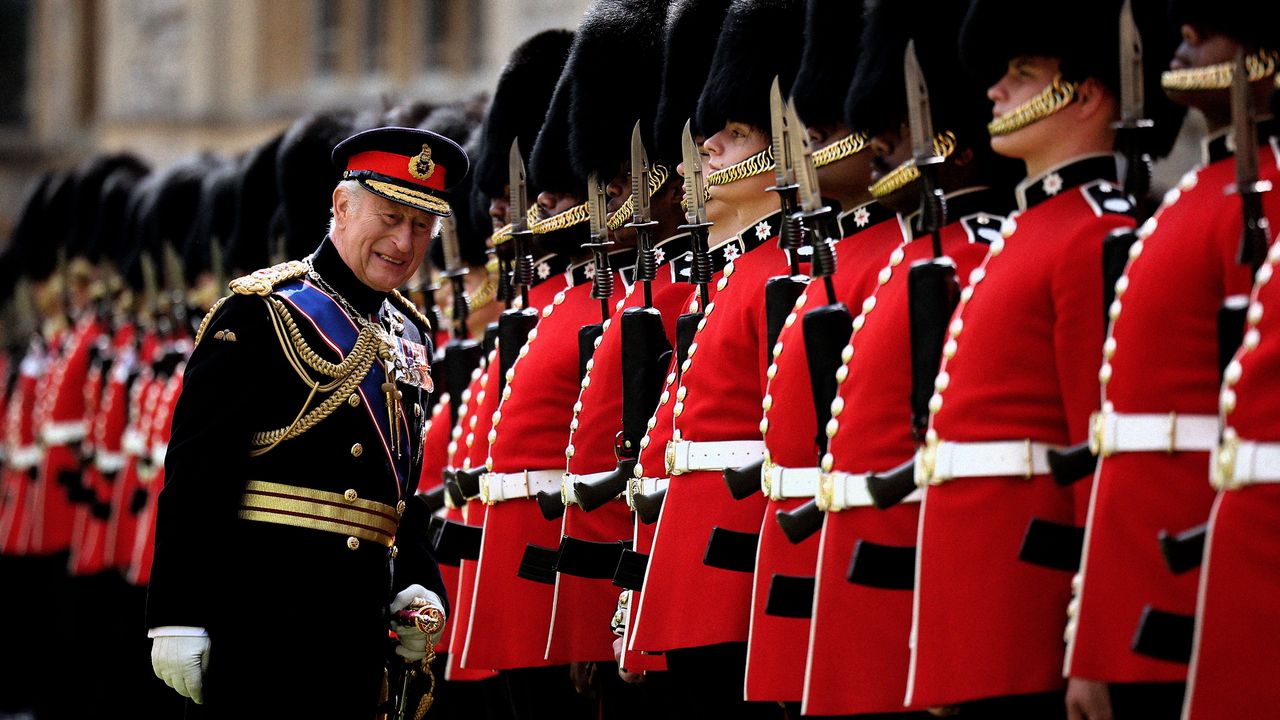Early in February 2024, when King Charles was diagnosed with cancer, he had been on the throne for just 17 months. It was still hard to tell how well he was grappling with the daunting task left to him by his mother, Queen Elizabeth II: To reassess the relevance of the monarchy for the rest of the century and put his own mark on it.
That question no longer applies. The king’s infirmity has concentrated his mind. While his workload has to be carefully managed, he has found his track in a way that was also used very effectively by his mother, to exercise soft power on behalf of his country when it is sorely needed in a world unsettled by another head of state, Donald Trump, who fancies himself as a king. Around 1,500 “No King” demonstrations are planned around the nation this weekend, while Trump has conflated his own birthday with the 250th anniversary of the U.S. Army to use tanks in his idea of a royal parade in Washington DC. Charles, in contrast, has spectacular annual parades of redcoats like the Trooping the Colour in Whitehall.
A hint of the king’s new mindset was given in April, when he invited a group of fellow cancer patients to Buckingham Palace. After discussing how challenging his illness was to them and himself he said, “I can vouch for the fact that it can also be an experience that brings into sharp focus the very best of humanity.”
For Charles, that focus has mostly involved supporting British foreign policy and, notably, in finding “the very best of humanity” in the cause of Ukraine’s survival in the war with Russia. Early in March, only a few days after Ukranian president Volodymyr Zelensky was given a tongue-lashing by Trump and Vice President J.D. Vance in an egregious Oval Office ambush he was, while in London for a summit of European leaders, he was flown by chopper to Sandringham for an hour-long private audience with the king, forging what has become a personal bond.
At the end of March the king was in Berlin, making his first state visit to Germany as monarch, and made a speech, partly in German, to the Bundestag, stressing the unity of Germany and Britain, both committed to providing crucial military support to the Ukraine. There could have been an awkward moment as he recalled family connections in Germany that went back generations, which include the pro-Nazi activities of the Duke of Windsor and others. But that passed without as much as a murmur as he said “Germany’s decision to provide so much military support to the Ukraine is extremely brave, important and welcome.”
He has done the same in France, addressing the French senate and talking about the “horrifying” Russian invasion of Ukraine, following that by inviting the French president, Emmanuel Macron, and his wife to make a state visit to the UK next month, where they will stay at Windsor Castle.
As he makes these overtly political statements, there are no complaints from the UK government about a monarch meddling in foreign policy, as once there were frequent complaints about his airing opinions when he was Prince of Wales. After all, he’s endorsing the commitment of both main British political parties to Ukraine’s cause.
“I know it sounds odd to say it,” says royal historian and well-informed Windsor watcher Hugo Vickers, “but when a prince becomes king he becomes almost a different man. Now Charles is head of state in his own right he is a statesman, meeting world leaders one-to-one and he has a lot of experience that he can bring to bear. Remember he met Churchill and Eisenhower when he was little and was well acquainted with most of the world’s statesmen of the twentieth century.’
Trump, however, has introduced a very tricky dynamic to the king’s activism. Charles is far too polished in statesmanship ever to reveal in public any unhappiness with an American president, even Trump. But according to a source with knowledge of the situation, both Charles and government ministers were irked by Trump’s proposal that Canada should become the fifty-first state. If there is one foreign policy cause that has primacy for the king, as it did profoundly for his mother, it is the stewardship of the British Commonwealth, a global alliance of 56 nations that were formerly under British rule.
